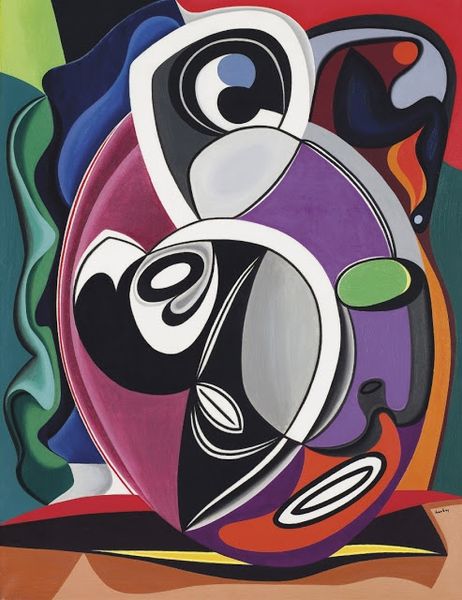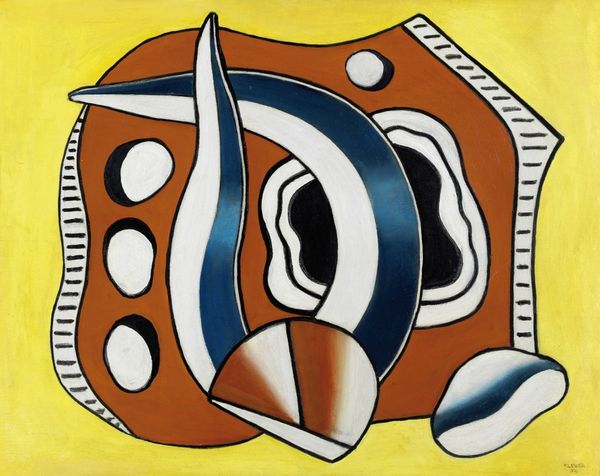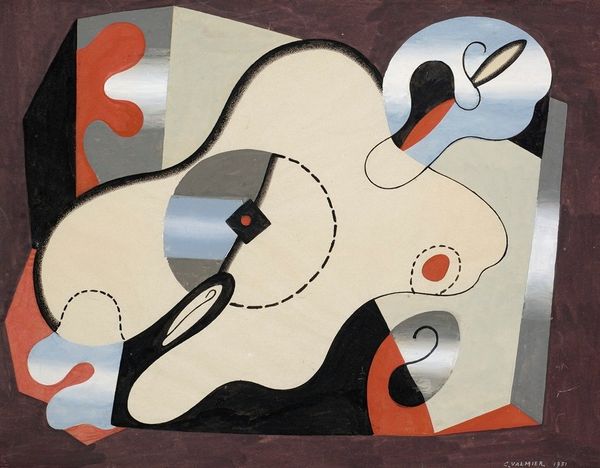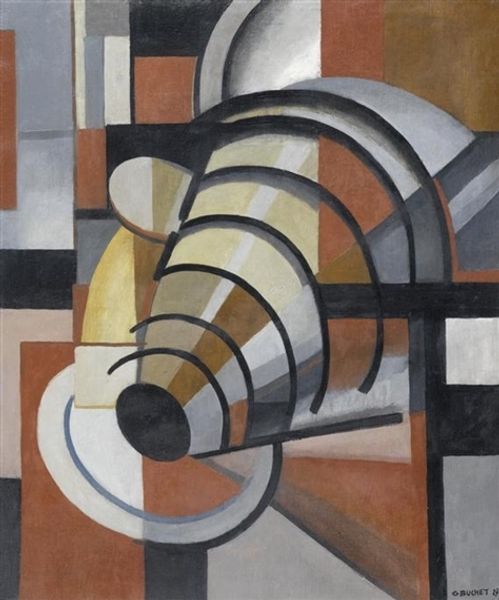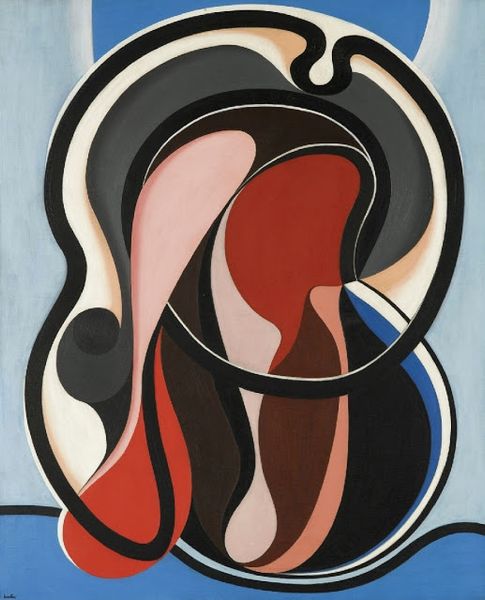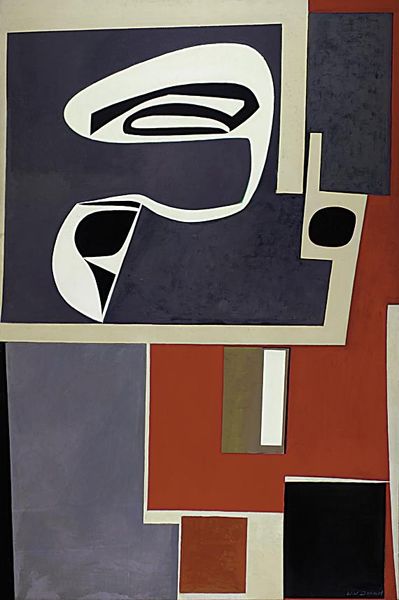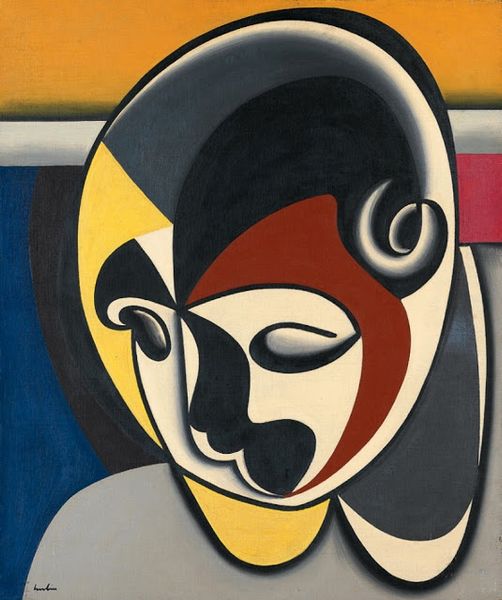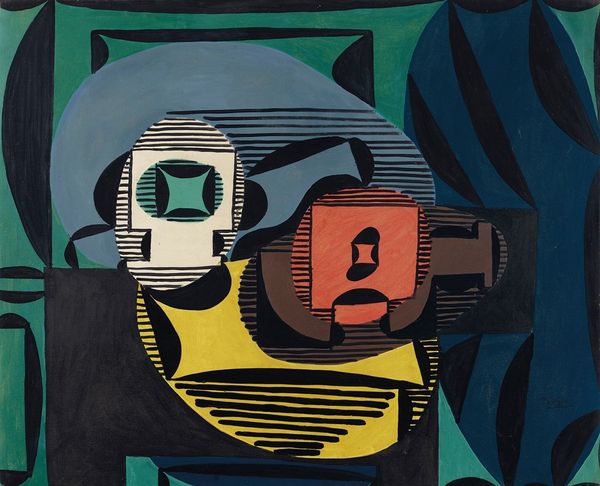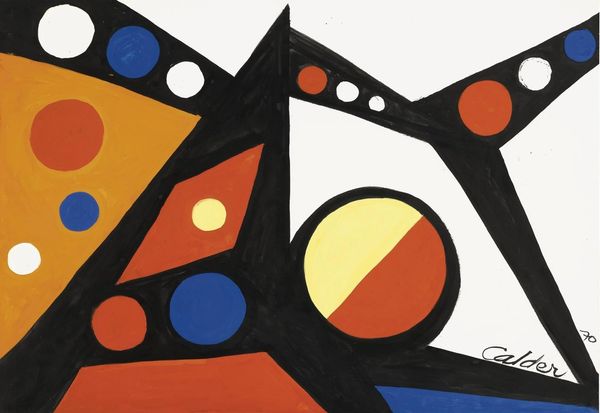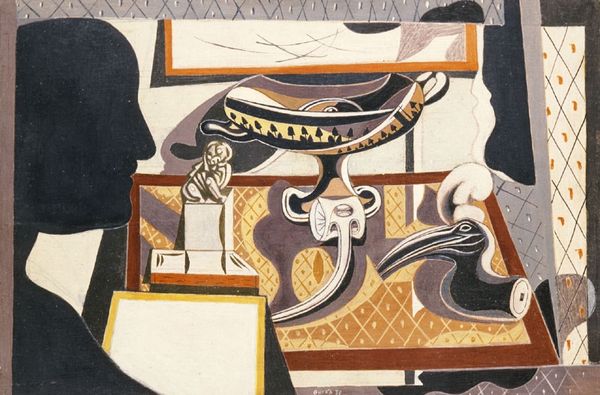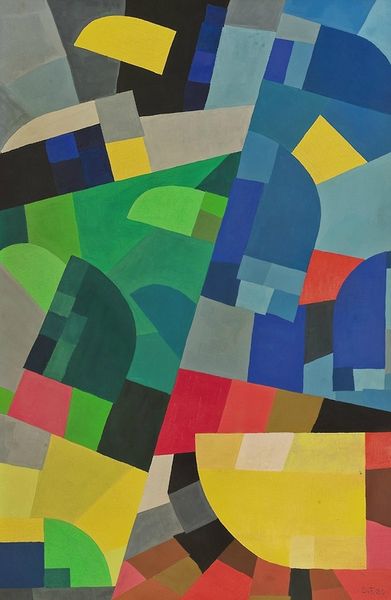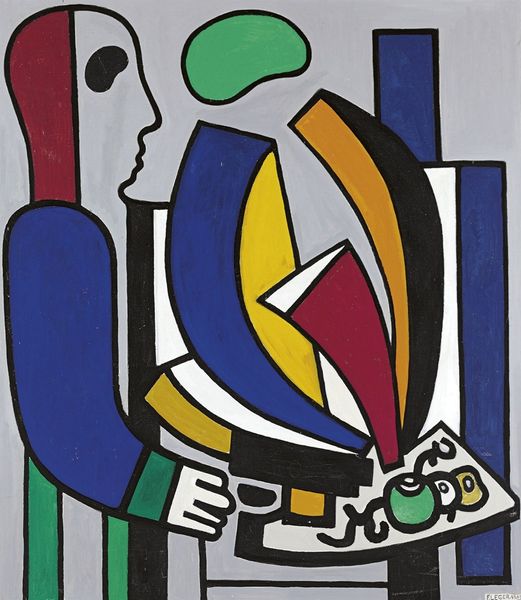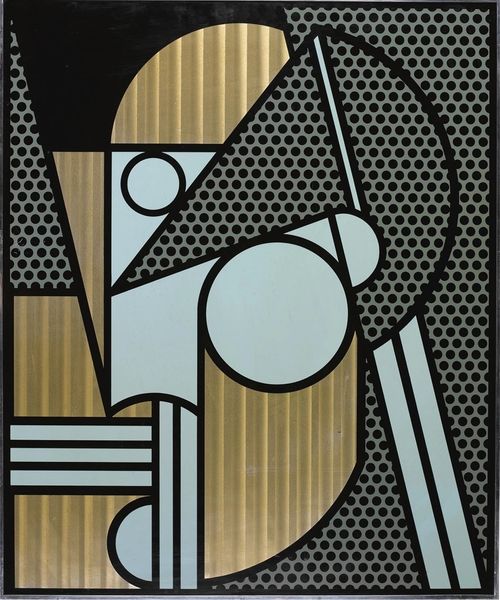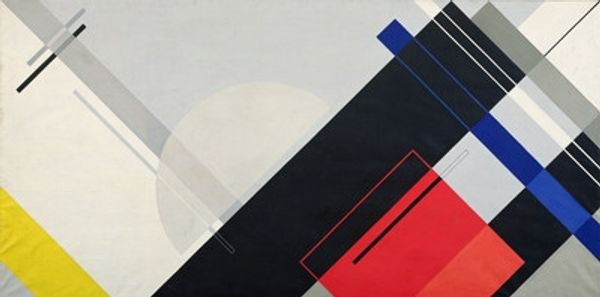
oil-paint
#
cubism
#
oil-paint
#
form
#
geometric-abstraction
#
abstraction
#
line
#
modernism
Copyright: Auguste Herbin,Fair Use
Editor: This oil painting is "Untitled," by Auguste Herbin, from 1931. It strikes me as a very self-contained composition with these almost playful curving shapes. How do you see this work? Curator: As a materialist, I’m drawn to how Herbin’s construction of form in "Untitled" reflects the shift in industrial production of the early 20th century. Think about the production processes: grinding pigments, stretching the canvas, the deliberate layering of oil paint… all creating these illusions of smooth, machine-like surfaces. The stark geometric abstraction seems less about pure aesthetics and more about embracing an aesthetic born from mass production. Editor: So, you see the medium as almost a mirror to the era's focus on manufacturing? Curator: Exactly. Look at the lines and shapes, which lack visible brushstrokes. Consider how this challenges traditional notions of the artist’s “touch,” replacing it with a sense of precise, almost automated creation. It’s also a statement about art's place in a society increasingly driven by mechanization. How does this change your understanding of the shapes? Editor: It definitely makes me think about the tension between the handmade and the machine-made. It’s like he's wrestling with the idea of what art even *is* in a world of factories and mass production. Are you suggesting the absence of brushstrokes implies an artist giving way to mechanization? Curator: It is less "giving way", more integrating art *with* those forces and exploring the changes in labor. These forms signal how labor is transforming under industrial capitalism, impacting artistic creation and aesthetic values. Editor: That’s fascinating; it's a completely different angle than I initially considered! I was so focused on the abstract beauty that I missed the underlying commentary on industry and labor! Curator: Exactly, paying attention to the production method transforms it!
Comments
No comments
Be the first to comment and join the conversation on the ultimate creative platform.
